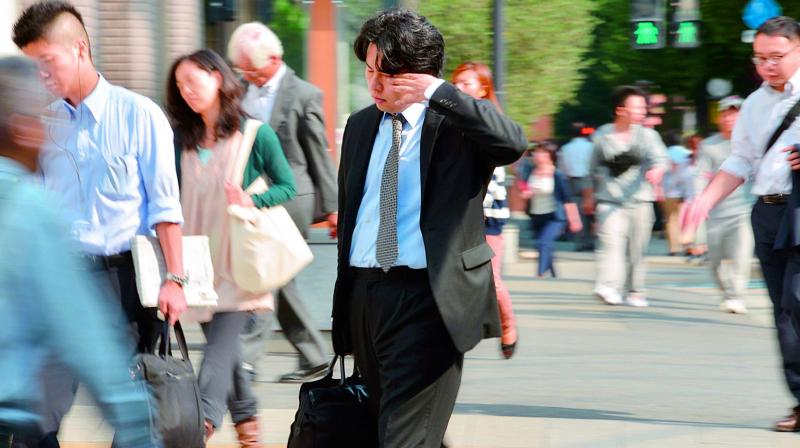Fury over Japan overtime cap

Workaholic Japan has unveiled its first-ever plan to limit overtime, but critics want to give it the boot, saying an “outrageous” 100-hour-a-month cap will do nothing to tackle karoshi, or death from overwork.
Tokyo’s bid to ease a national health crisis comes after the top executive at advertising giant Dentsu quit late last year in response to the suicide of a young employee who regularly logged more than 100 hours of overtime a month.
The death of Matsuri Takahashi generated nationwide headlines, prompting the government to come up with a solution to punishing work hours blamed for hundreds of deaths due to strokes, heart attacks and suicides every year.
A panel headed by Prime Minister Shinzo Abe has since come up with a plan calling for a maximum of 100 overtime hours a month. The conservative leader called it a “historic step for changing the way people work in Japan” but critics think the plan should be given its marching orders.
The Labour Lawyers' Association of Japan has slammed the proposed cap as “extremely inappropriate” and “impossible to support”. Others who have lost loved ones to karoshi agree. “We cannot accept this -- it's outrageous,” said Emiko Teranishi, who heads a group for relatives of karoshi victims.
Teranishi's husband was the manager of a struggling soba noodle restaurant in Kyoto when he committed suicide in the mid-nineties after suffering from depression blamed on long working hours. “My husband worked for a total of 4,000 hours a year without weekends off. At most, he had two days off a month,” she said, adding that he was pressured to work more by his recession-hit employer.
The popular post-war image of a Japanese “salaryman” toiling long hours, drinking with the boss and then taking the last train home has evolved over the decades, but many still spend far more time at the workplace than their counterparts in other modern economies.
Currently, Japanese firms can make full-time employees work far beyond the usual 40 hours a week. Overtime is viewed as a sign of dedication at many firms, even if Japanese workers’ productivity lags behind that of their US and European counterparts.

